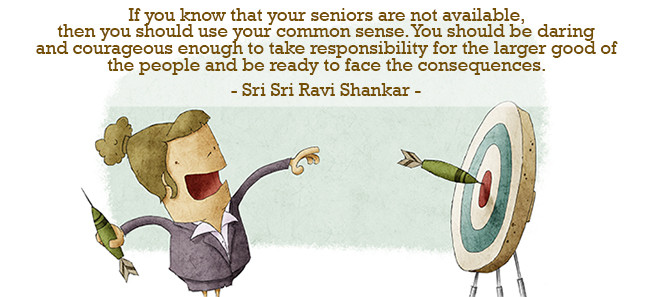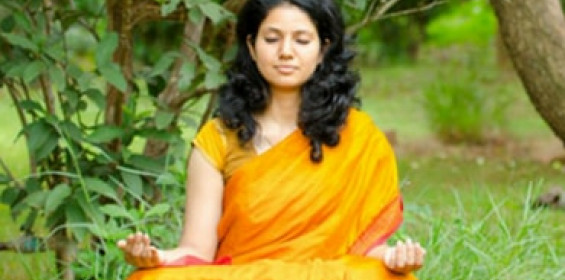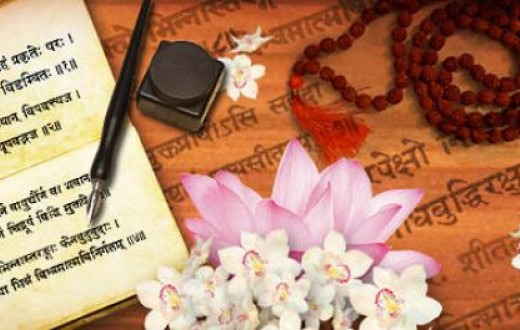
(Below is a continuation of the post Spread The Sweetness Of Joy Around)
Absolutely yes! But he should remove the label ‘I am an atheist’. If he is a ‘nobody’, he can get liberated.
If you simply say, "I don’t know whether there is some other power or not, I have no idea", then you are not an atheist. One who admits ignorance is not an atheist. Who is an atheist? One who says, "I know there is no God", he is atheist.
What do atheists say? "What I know is all that is, what I don’t know does not exist! If something exists, I must know it! Since I don’t know, whatever I don’t know, does not exist!" If that is the atheism (that you believe in), then you will miss many things because you already ‘know’ that nothing exists, so you will not want to know whether anything exists or not.
If you are agnostic, it is fine. If you say, "I don’t know, I won’t believe unless I know", this is fine. In fact, the Oriental philosophy never asks you to believe something that you don’t know, unlike the Occidental philosophy. In the Occident, they say that you believe in God, then one day you will get an experience. In the Orient, they will never say that.
In the Orient, first know the knowledge of the five principles (earth, water, fire, air, ether), then the three principles (mind, intellect and ego), and then the ninth one (the Self). If you know these eight, then will you know the Self. Once you know the Self, i.e., atma, then you will know that which is beyond the Self, i.e., Paramatma.
Beyond I, there is something called Eswar , which you know only by experience. When it comes to your experience, only then can you say you believe it! Before that, you don’t need to believe it. However, you can’t say, "I don’t believe it existS!"
If I ask you, "Do you believe that you exist?" You will say, "Yes". And what is you? Who are you? This is what meditation is all about! This is what the Upanishads do; they take you step by step into the unknown.
The Upanishads never tell you to believe in something that you don’t know. This is also the reason why the Oriental philosophy has never been in conflict with Science, ever! Science also goes with a systematic understanding of what you know, to what you don’t know. And the Oriental philosophy also goes from the known to the unknown. And there are some unknown things. Accepting the unknown and loving it is what is called Shraddha (faith) . Once you have Shraddha then you get it.
See, if the Wright Brothers didn’t have faith that they could fly, they would never have attempted it. This is the philosophy of the Darshan Shastras.
There are six Darshana Shastras (schools of philosophy which are Nyaya, Samkhya, Mimamsa, Vaisheshika, Yoga and Vedanta).
The first Nyaya is about the means of knowledge. It helps one understand whether the means of knowledge is correct or not. For example, when I say, "I am seeing the sun setting and rising", is this knowledge correct? This is Nyaya Darshan.
In India, it was known 5,000 years ago that the Earth is spherical and all the planets go around the Sun. That is why the study of the Earth (Geography) is called Bhugol, and the study of the universe is called Khagol; gol means spherical . It was only in the West that Galileo found out that the Earth is spherical. The Indians knew it much before.
In very old temples, maybe 1,500 to 2,000 year old temples, there is a Varaha Moorthy (the statue of Lord Vishnu in the form of a boar), and on top of his nose, a sphere is kept (to indicate the Earth). If you go to any old temple also, they would have put all the planets with the Sun in the middle.
Even today, if you see the Indian calendar, Panchanga,it determines exactly what time the Sun and the Moon rise, what time the eclipse starts. All this information is very precise to the minute! There could be a variation of just a few seconds, twenty seconds and not more in some places. This is what we see in the calculations which have been happening for such a long time. This is possible because we have understood even philosophy with a scientific temper.
Now, having said that, don’t think that we have no superstitions in this country. We have plenty of them, such as, ladies should not touch the Shiva Lingam, ladies should not chant Gayatri Mantra and all sorts of nonsense! All through time gender equality has been emphasized, but in practice it is not being done!
In temples, people go and pour liters and liters of milk on the statues and it all goes into the gutter. Nowhere has it been said that you have to put so much milk on the statues. I always say that you should not do this. You can pour some milk but then give it to people later on. There are so many types of things done out of ignorance, things which have no scriptural injunction are being practiced. Someone started some practices, it just continued without any basis. We need to apply some philosophical wisdom here.
At the same time, there are differences in tradition and culture also. Here in Karnataka, a bride wears only a white saree on the wedding day, while in Tamil Nadu, the bride wears a red saree. In Karnataka, a red saree is not considered auspicious on the wedding day. Similarly, there are different customs. In Rajasthan, ladies pull the ghungat (a scarf) to cover the head, while in Tamil Nadu and Kerala, women will never do that, it is considered inauspicious. These are all customs that make the country very interesting!
Well, the analysis will take a long time. I was told that the flood gates were not opened at the right time, they waited till the last minute. The concerned authorities were scared to take permission from the Chief Minister to open the gates.
This is how problems arise -- when power gets centralized, people don’t use their common sense. They sit and wait for instructions from above. If you know that your superiors or seniors are not available, then you should use your common sense. You should be daring and courageous enough to take responsibility for the larger good of the people, and be ready to face the consequences.
At the same time, when leaders become rigid, they create paranoia in people around them, which does not let them take responsibility. And irresponsible people who don’t do what they are supposed to do, cause more disaster on this planet. These people have become irresponsible because they are clogged with paranoia or fear.
You cannot manage anything through fear. Only a little bit of fear is essential. You should fear the law but you cannot function in society with fear all the time. Be it fear of authority, fear of the people above you, fear of losing a job, or fear of being persecuted. And this is exactly what happened in Chennai. Of course, they have to analyze it much more.
One thing is for sure, we have to care for our environment much more than what we are doing now. In the ancient days, all the dams were connected, by little canals. Now, the sand and land mafia have destroyed all those connections. All of them have grabbed the land in between the water channels, and built homes in the canals and low lying areas. So when the dam gets filled, the water does not have another outlet. This is what happened in Chennai. The 20 or more lakes that were initially all connected had no place to overflow, since people had built homes in these low lying areas.
Even here in Bangalore, we have fought several times with the authorities because they wanted to fill up the lake area behind Radhakunj. In fact, that is the reason why we bought the land around the lake, nearly 20 years ago, even though we did not need so much land. Similar things happen in other places.
We have rejuvenated many ponds and lakes in Karnataka and Maharashtra. We need to take better care of the environment.
In spite of all this, nature’s fury happens, we cannot do anything, simply have to accept it. What we can do is to prevent and manage man-made disasters. But when nature’s fury occurs from time to time, it has its own purpose.





































